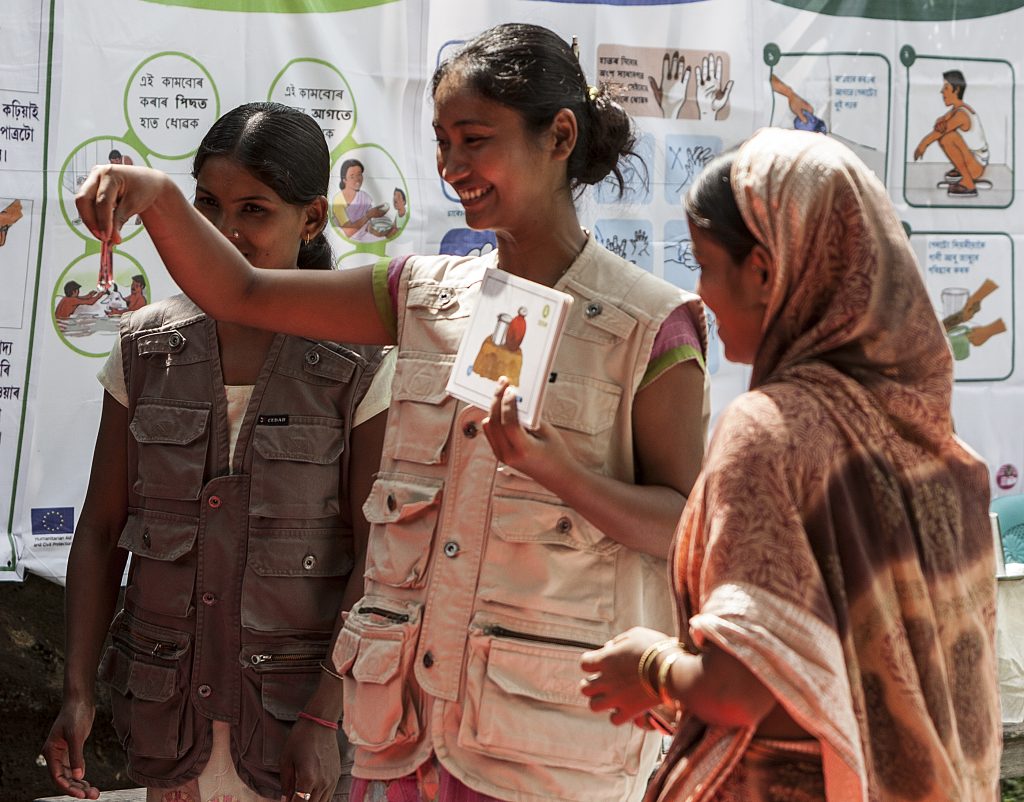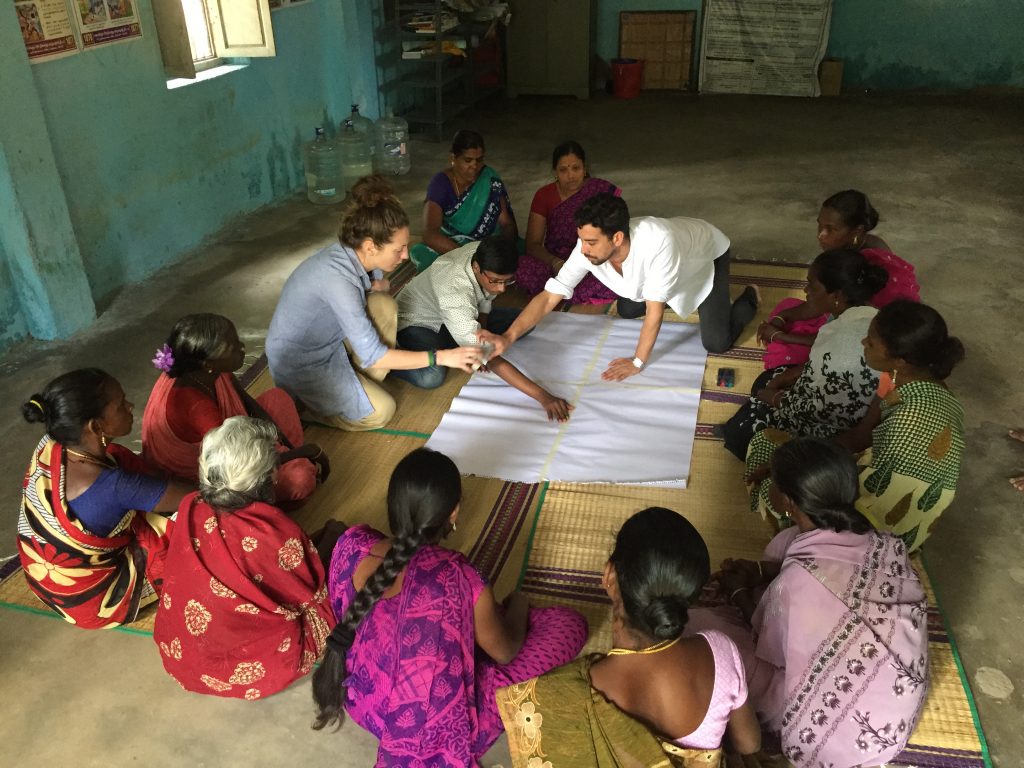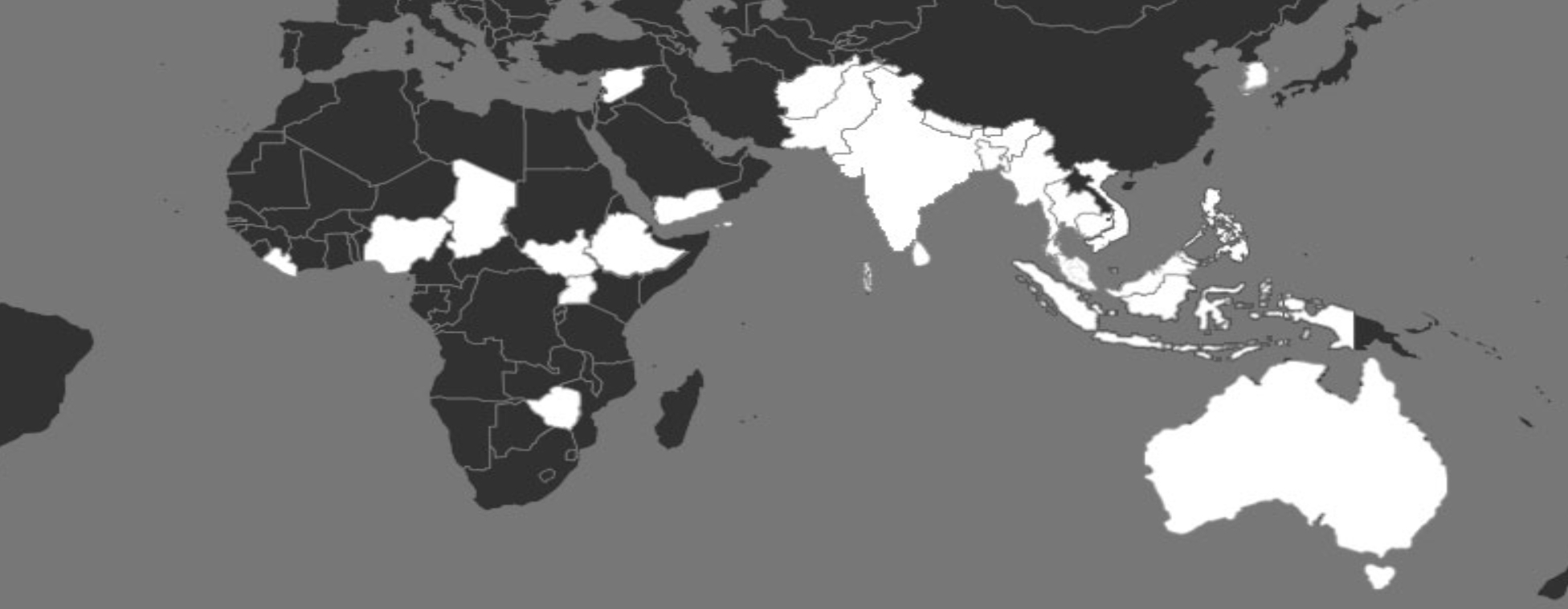The idea of having a RedR in India was conceived in 1995 by DROP, a Non-Profit organisation. In the incubatory phase of RedR India, Paul Sherlock, who was with Oxfam GB at that time, introduced and facilitated communication between DROP and RedR UK and thereafter with RedR International in 1997. DROP carved out RedR India from within the organisation under the tutelage of Dr. Ghare, who led and shaped the thought and strategy of a RedR in India. Ajeet Oak and Ajit Phadnis have been facilitating the process since, first as DROP founder members and sector professionals, and subsequently as founder trustees of RedR India. Sarbjit Singh joined RedR India in early 2000s and then took over as its founding executive director when RedR India formally incorporated as an organisation in 2003.

At inception, RedR India primarily focused on an enrolling prospective members to the roster, training them, and supporting their recruitment and move into the humanitarian aid sector. This helped put together a strong foundation for RedR India. The power of membership and member developmentwas central to our growth as an organization from a few peoplegrappling with an idea, in the aftermath of the Latur Earthquake of 1993, to a group of motivated and committed persons supporting the Bhuj Earthquake response in 2001 and attracting more like minded professionals to the mission. During the intervening years RedR International supported the capacity building of professionals and engaged with establishing and initiating the roster membership process. These early years saw incredible support coming our way from P. Chacko of Oxfam GB and Koen Versavel of RedR International.
When the Indian Ocean Tsunami struck, our capacity was stretched, capabilities were tested and we strived extensively to support many humanitarian agencies and communities across the affected countries with our specialist members, trainers and interventions. In particular, we worked closely with Oxfam and UNICEF and in the process learned and received organizational and technical support. Our training work witnessed significant expansion during this phase under the stewardship of Prasad Sevekari. Rapid decision-making and timely communication witnessed a small installed capacity in Pune delivering good results in this part of the world and made capacity building services the driving factor of our programme delivery by 2007. We also started offering technical and project services in 2005 as another avenue of engagement with the humanitarian sector. This became an instrumental step in creating value through engagement at a more strategic level and by 2007-08 RedR India had a dedicated team for this portfolio.
Following its recent 10 year anniversary/review, RedR India, will seek to strengthen as a learning and development centric organization for humanitarian and DRR action, built on diverse and multiple stakeholder partnerships. Amidst the continuing evolution, timely, proficient and effective service delivery remains at the core of our operations to assist at-risk populations, governments and other actors.
History of RedR International

In 1979, Peter Guthrie was recruited through Oxfam to work in the refugee camps for three months following a huge exodus of Vietnamese boat people to Malaysia. He says about his experience there:
“When I returned I saw the pressing need for engineers to help in this sort of work and compiled a register of engineers who could be called upon at short notice to work with frontline relief agencies.”
In 1982, RedR – the Register of Engineers for Disaster Relief was formally established as a charity. It relied mainly on volunteers and ran a small programme of training events.
That vision for readily available skilled engineering professionals, has evolved into an international federation of RedRs that provide training, technical and advisory support and, recruitment services for humanitarian professionals and agencies across the world.
In the 3 decades since the inception of RedR, RedR members have been frequently called upon to respond to emergencies and disasters across the globe and in multiple sectors. Over time the RedR register expanded to include logisticians, security personnel, healthcare professionals, disaster management specialists, child protection services, shelter and settlement planning professionals, Public Health Specialists and Social Sector Professionals. Cumulatively, the RedRs deploy a few hundred members annually to crisis situations. With the growing activities and extensive number of training courses worldwide, RedR has expanded to multiple countries and the federation currently has country organizations in Australia, India, Indonesia, Malaysia and United Kingdom. RedR formally instituted in 1993 and each country organization becomes an accredited member.


